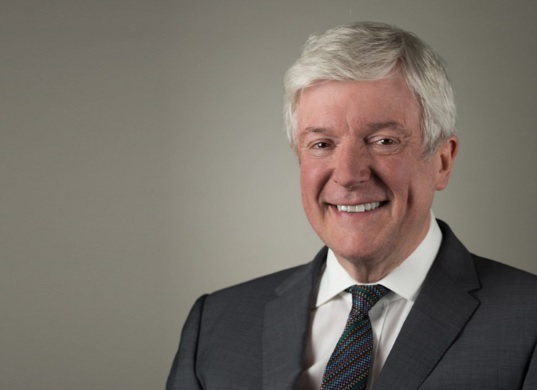BBC director-general Tony Hall announces exit

News of Hall's departure comes six months after CBC and BBC committed to future collaborations across scripted, factual, podcasting and other areas.
BBC veteran Tony Hall is to step down from his role as director-general of the U.K. pubcaster this summer.
Hall (pictured) was named as the 16th director-general of the BBC in 2012. The role saw him taking on responsibilities as CEO and editor-in-chief as well as editorial, operational and creative leader of the pubcaster.
He joined the BBC as a news trainee in 1973 and over his 28 years with the organization held roles including senior producer at World at One, assistant editor of the Nine O’Clock News, output editor for Newsnight, and chief executive of BBC News from 1996 to 2001.
His time at the BBC has included launching Radio 5 Live, BBC News 24, BBC News Online and BBC Parliament. The BBC and CBC have begun to work more closely in recent years, with Hall and CBC head Catherine Tait committing to future collaborations between the two public broadcasters across areas including scripted, factual and podcasting.
Hall has also served as deputy chairman of fellow UK pubcaster Channel 4 Television, and he is a trustee of the Paul Hamlyn Foundation and the Foundation Years Trust. Additionally, he was the founder chair of creative & cultural skills, chairman of the musical and dance scheme, chair of Stratford East Theatre, and he was chair of the Cultural Olympiad Committee and a member of the London organizing committee for the 2012 Olympic Games.
Meanwhile, he was appointed a CBE (Commander of the Most Excellent Order of the British Empire) in 2005, and in 2010 was named a life peer with the title Baron Hall of Birkenhead. He sits on the Crossbenches in the House of Lords.
“Responsibility for appointing his successor lies with the BBC Board. Within the next few weeks we will publish a job description and advertise the job, seeking candidates within the corporation and externally. We are committed to selecting the best qualified person for the job,” said a BBC statement.
Below is the message, in full, written by Hall and addressed to BBC staff:
Dear colleagues,
First of all, thank you for all your comments and feedback since I spoke to you from Cardiff last week. It was really important to me to set a clear direction for us, as well as celebrating some of the outstanding work you’re doing.
My reason for writing is however more personal. I wanted you to be the first to know that I will give my all to this organization for the next six months, as I have done these last seven years. But in the summer I’ll step down as your director-general.
It’s been such a hard decision for me. I love the BBC. I’m passionate about our values and the role we have in our country – and what we do globally too.
If I followed my heart I would genuinely never want to leave. However, I believe that an important part of leadership is putting the interests of the organization first. The BBC has an eleven-year Charter – our mission is secure until 2027. But we also have a mid-term review process for the spring of 2022. As I said last week, we have to develop our ideas for both. And it must be right that the BBC has one person to lead it through both stages.
Over the next six months my priority, as always, will be to champion this great organization and continue to direct our re-invention. There’s so much we can do to transform the creative industries around the UK still further and to project this country’s talent and ideas to the world.
Our chairman, David Clementi, will begin the search for my successor and he’ll let you know how that will work shortly.
We’ll have plenty of time to talk in the months ahead but I’d like to share three thoughts with you today.
First, thanks to you and your great work I believe I’ll be leaving the BBC in a much stronger place than when I joined. It feels a very different organization – more innovative; more open; more inclusive; more efficient; more commercially aware. And a BBC that’s on cracking creative form. You all have my thanks and admiration for the part you’ve played in that success.
Change has been tough at times – and, of course, there’s still more to do. But I believe our recent record of transformation stands comparison with virtually any other creative organization in the world.
Second, without question, our values have never been more relevant to the society we live in. As our country enters its next chapter it needs a strong BBC, a BBC that can champion the nation’s creativity at home and abroad, and help play its part in bringing the UK together. In an era of fake news, we remain the gold standard of impartiality and truth. What the BBC is, and what it stands for, is precious for this country. We ignore that at our peril.
Finally, we must and can never stand still. We have to keep adapting, reforming and leading. Our values are timeless but the need for constant change is ever-present. The BBC has changed hugely in recent years – and that’s going to continue. We have to embrace the opportunities it brings.
We’ll be working flat out, across the Executive Committee, to implement the priorities I talked to you about last week, and to demonstrate why public service broadcasting – with the BBC at its heart – is an eternal idea.
Very best wishes,
Tony
From Realscreen

 The definitive CDN broadcast and production resource.
The definitive CDN broadcast and production resource.










